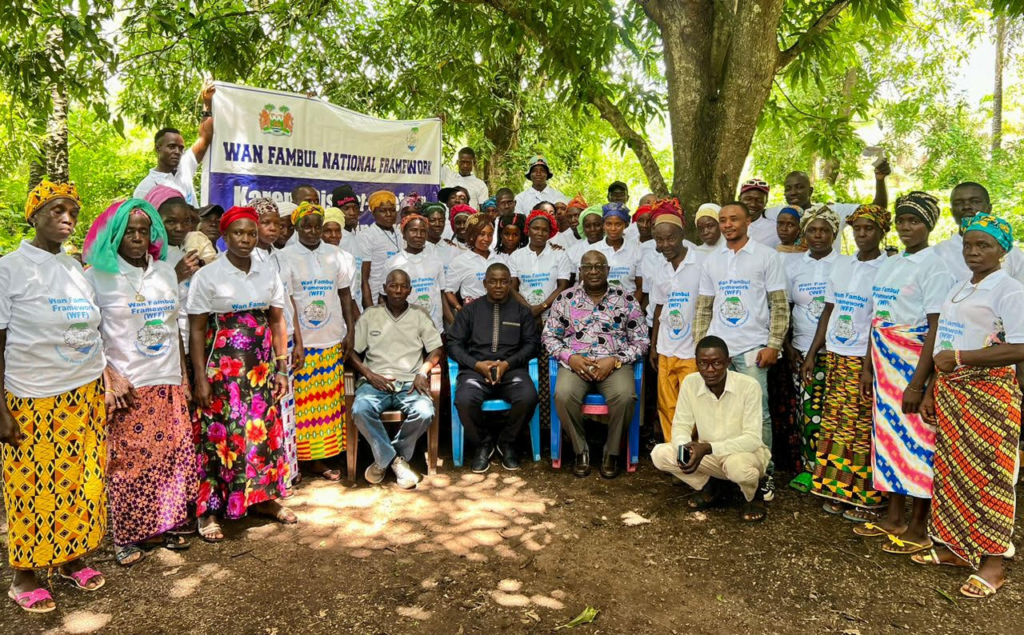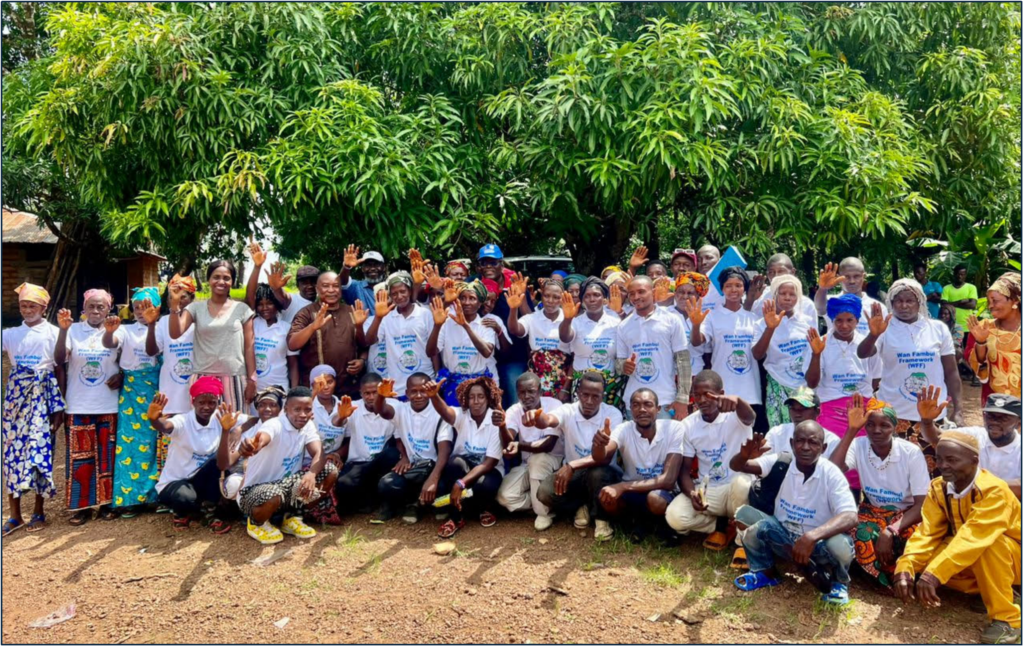Wan Fambul Framework, in collaboration with the Ministries of Local Government, Gender, Environment, and Planning and Economic Development, has successfully initiated the formation of the Village Development Structure (VDS) for Bisongo Village in Karene District. This initiative serves as a coordination mechanism at the village level, feeding into the Chiefdom People’s Planning Process.
“These village structures will eventually handle the affairs of delivery and development on behalf of the government, serving as an effective coordination mechanism,” explained Rev. Jonathan Titus Williams, Deputy Minister of Planning and Economic Development, during the training session. He lauded Fambul Tok’s leadership in community development efforts, emphasizing the importance of inclusive growth. “The selection of this community exemplifies our commitment to reaching the last mile and leaving no one behind.”
The process began on Friday with the training of Community Welfare Mediation Facilitators (CWMF) from 15 villages, including Bisongo. These facilitators received training in mediation, reconciliation, communication, leadership, resource mobilization, and basic project management.
“These efforts align strongly with Sierra Leone’s Medium Term National Development Plan and the ‘Big Five’ priorities. This initiative is a vital step towards achieving President Bio’s ‘Feed Salone’ initiative,” noted Deputy Minister Williams, encouraging the community’s continued determination.
Abdul Kandeh Turay, Chairman of Karene District Council, expressed excitement about the initiative, highlighting its alignment with the council’s plans to work closely with local communities for peace and development. “Our doors are open to accept development in any form. We are eager to collaborate further to advance the Wan Fambul Framework in our locality,” he stated.
Amadou G. Kargbo, Section Chief of Kalangba Section, affirmed their readiness to implement the initiative fully. “We are energized and ready to put into practice what Fambul Tok represents—our hope and desire for greater prosperity in our communities,” he declared.

The training concluded with a bonfire in Bisongo, symbolizing community reconciliation, peacebuilding, and development.
The following day, Fambul Tok staff facilitated the formation of the Village Development Committee (VDC). This included registering residents and emphasizing the Terms of Reference before the election. The election process is a crucial part of the Wan Fambul Framework, funded by the government to cascade development into remote communities.
Witnessing the election process, the Acting Minister of Local Government and Community Affairs highlighted President Bio’s commitment to reaching every community in Sierra Leone with the government’s development agenda. “The Wan Fambul Framework is achieving this by establishing village council models to ensure development reaches even the most remote areas,” he remarked. He praised the community selection process for aligning with the President’s vision.
The Director of Fambul Tok, John Caulker, emphasized the organization’s partnership with the government to roll out the Medium Term National Development Plan to the last village in Sierra Leone. “This model empowers communities to choose between their needs and what development partners or the government propose,” he explained.
The election concluded peacefully, with a female candidate emerging as the Chairperson of the Bisongo Village Development Committee. Other villages in the Kalangba Section were encouraged to replicate the process in forming their committees.
The Wan Fambul National Framework, launched in 2017, promotes inclusive decentralized development planning. It brings together various local stakeholders to identify community needs and co-create development plans for informed decision-making and resource allocation. This framework is a partnership between the Ministry of Planning and Economic Development (MoPED), the Ministry of Local Government and Community Affairs (MLGCA), and the grassroots organization, Fambul Tok, based on post-war reconciliation methodologies and the People’s Planning Processes (PPPs).
